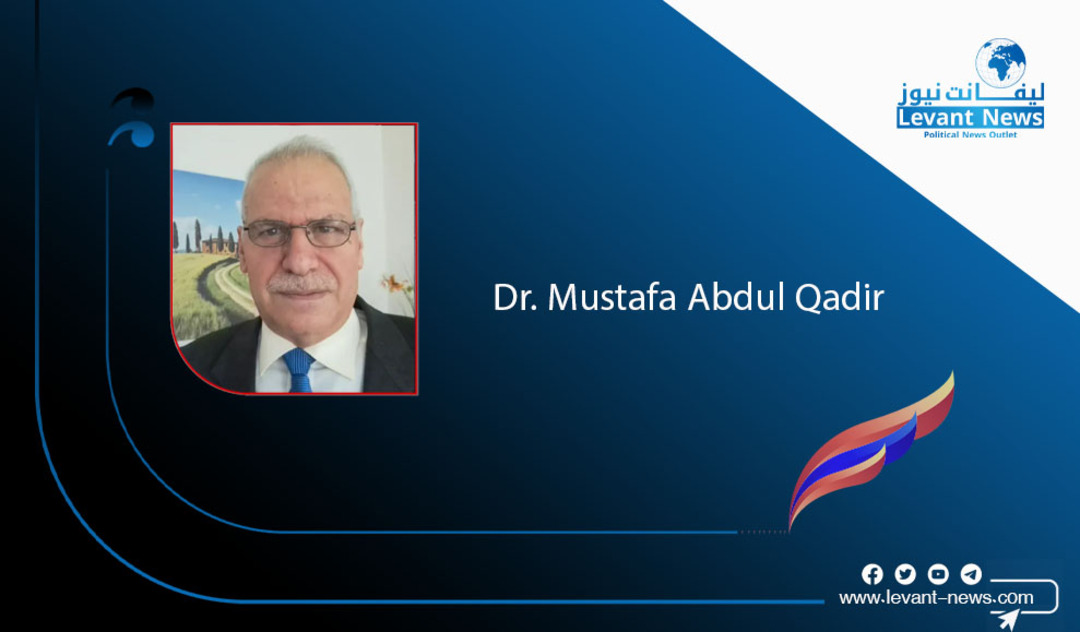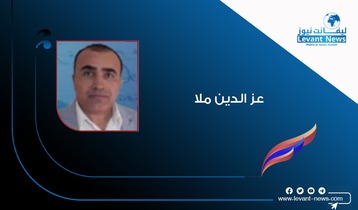-
The West and the Mullahs' Regime in Iran Drive the Region Towards an Arms Race

As a result of the opaque policies of the West and their cover-up of the ruling mullah regime's destructive expansionist agenda in Iran, it has become clear that there is a frantic arms race and an increase in military spending exceeding the projections made by the International Institute for Strategic Studies. Even small, low-population countries are racing to catch up with their neighbors by joining the ranks of nations eager to raise their spending on armaments, driven by fears imposed by new developments and signs warning of dire consequences if they remain outside the framework of the required arms race.
The ambitions of the mullahs in Tehran have been evident since they took power in Iran in 1979, with their insistence on "exporting the revolution" and their insatiable infiltration into the Arab sphere for the sake of domination and spreading their illusions, coloring Arab nations in their concealed guise of religion. These ambitions have found resonance in those who act as their trusted agents in several Arab countries, creating anxiety among the people of the region and fears about the mullahs' expanding and encroaching ambitions.
The Arab region is experiencing political fluctuations with regional dimensions, and it is globally linked, provoking it when it is calm and stirring it when it is still. No situation remains stable nor decision firm. The focal point of tension and explosion shifts from one place to another amidst intricate entanglements with far-reaching accounts and underlying causes that have been chronic for decades. Undoubtedly, global powers are always working to exploit every means that support their interests, aligned with their thinking and control over the levers of balance that cater to their ambitions, capable of steering them in the direction that aligns with their desires.
In response, Saudi Arabia, Qatar, the United Arab Emirates, Oman, and Bahrain have increased their annual defense spending. Today, conventional weapons are no longer effective against the nuclear weapons that Iran seeks to possess, which leads Arab countries, particularly in the Gulf, to look for all means capable of providing adequate protection. The threats from the Iranian mullahs have begun to impose a reality that has affected many Arab countries. Nevertheless, the feeling among a group of countries suffering from the overreach of Iranian rulers is that the objective equivalent to the growing military capabilities of Iran and its relentless pursuit of nuclear weapons—allegedly for "peaceful purposes"—is to possess a deterrent system commensurate with what the Iranian mullahs are striving for.
The tyranny of the mullahs has opened eyes and stirred minds towards serious considerations for acquiring nuclear weapons capable of protecting these nations from the ambitions of Iranian rulers and their unchecked arrogance. It appears that this race among regional nations to increase conventional and unconventional military capabilities will not achieve stability and security for these nations; they will remain within the cycle of recurring conflicts—sometimes quiet and most often loud. Undoubtedly, the Arab region is not immune to the global challenges that cast strong influences on its future, and the ongoing instability in the Middle East plays a significant role in the course of global events.
The mullahs' clique in Iran remains determined to increase their uranium enrichment to obtain their nuclear aspirations. A prominent research center has confirmed that if Iran manages to develop nuclear weapons, this will trigger a regional arms race, as Egypt, Saudi Arabia, Turkey, and other Gulf states will seriously consider acquiring atomic bombs.
Direct negotiations are currently taking place between the Iranian mullahs and the United States in Oman regarding a new agreement on nuclear and ballistic weapons. We do not know if this will lead to a new agreement based on new terms, or if it is possible to eliminate the idea of relinquishing nuclear weapons from the minds of the Iranian mullahs, or whether they will continue to play for time and maneuver until the right opportunity arises to surprise the world by joining the nuclear club against the will of the international community. The coming days will clarify all ambiguities and reveal all that is hidden from sight. Assuming this happens, what are the expected reactions from the United States and other Western countries?
The simplest and most immediate solution would be to recognize the Iranian people's right to struggle for the establishment of a non-nuclear democratic state that meets the demands of all components of the Iranian people, respects its neighbors, and adheres to international agreements and norms, as stated in the ten-point plan of Mrs. Maryam Rajavi, leader of the Iranian resistance. Would this solution be appealing to the international community?
Dr. Mustafa Abdul-Qader
You May Also Like
Popular Posts
Caricature
BENEFIT Sponsors BuildHer...
- April 23, 2025
BENEFIT, the Kingdom’s innovator and leading company in Fintech and electronic financial transactions service, has sponsored the BuildHer CityHack 2025 Hackathon, a two-day event spearheaded by the College of Engineering and Technology at the Royal University for Women (RUW).
Aimed at secondary school students, the event brought together a distinguished group of academic professionals and technology experts to mentor and inspire young participants.
More than 100 high school students from across the Kingdom of Bahrain took part in the hackathon, which featured an intensive programme of training workshops and hands-on sessions. These activities were tailored to enhance participants’ critical thinking, collaborative problem-solving, and team-building capabilities, while also encouraging the development of practical and sustainable solutions to contemporary challenges using modern technological tools.
BENEFIT’s Chief Executive Mr. Abdulwahed AlJanahi, commented: “Our support for this educational hackathon reflects our long-term strategic vision to nurture the talents of emerging national youth and empower the next generation of accomplished female leaders in technology. By fostering creativity and innovation, we aim to contribute meaningfully to Bahrain’s comprehensive development goals and align with the aspirations outlined in the Kingdom’s Vision 2030—an ambition in which BENEFIT plays a central role.”
Professor Riyadh Yousif Hamzah, President of the Royal University for Women, commented: “This initiative reflects our commitment to advancing women in STEM fields. We're cultivating a generation of creative, solution-driven female leaders who will drive national development. Our partnership with BENEFIT exemplifies the powerful synergy between academia and private sector in supporting educational innovation.”
Hanan Abdulla Hasan, Senior Manager, PR & Communication at BENEFIT, said: “We are honoured to collaborate with RUW in supporting this remarkable technology-focused event. It highlights our commitment to social responsibility, and our ongoing efforts to enhance the digital and innovation capabilities of young Bahraini women and foster their ability to harness technological tools in the service of a smarter, more sustainable future.”
For his part, Dr. Humam ElAgha, Acting Dean of the College of Engineering and Technology at the University, said: “BuildHer CityHack 2025 embodies our hands-on approach to education. By tackling real-world problems through creative thinking and sustainable solutions, we're preparing women to thrive in the knowledge economy – a cornerstone of the University's vision.”
opinion
Report
ads
Newsletter
Subscribe to our mailing list to get the new updates!






















